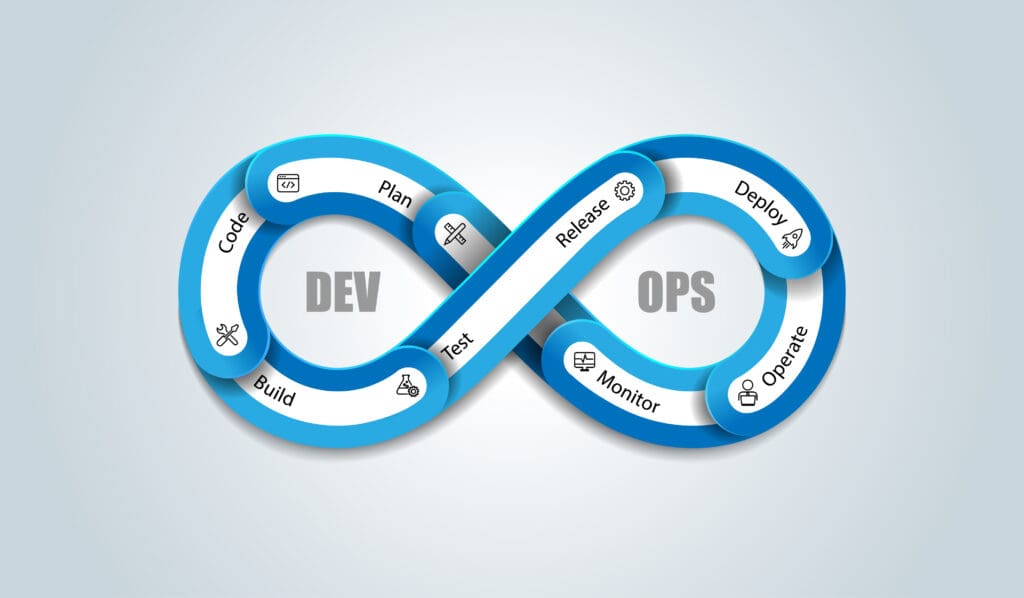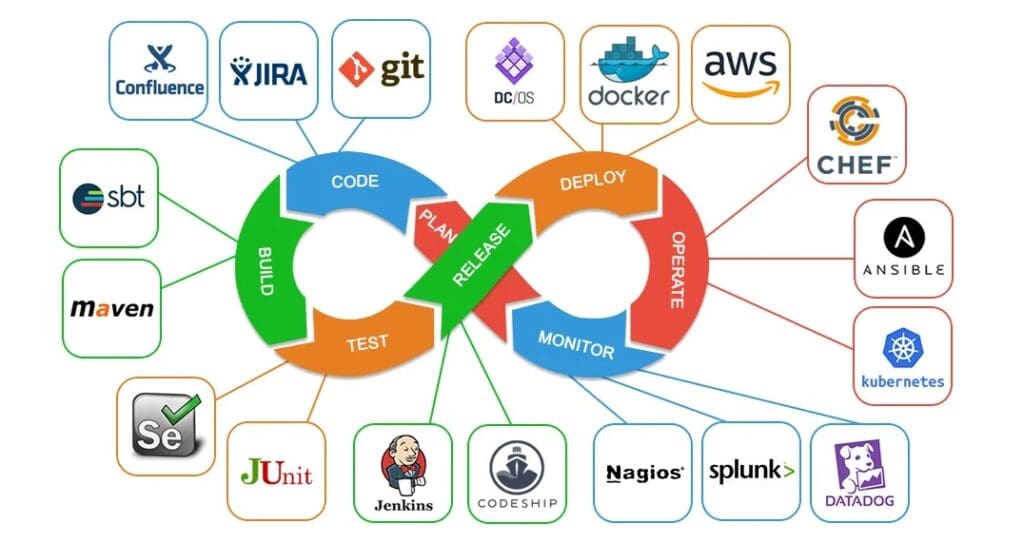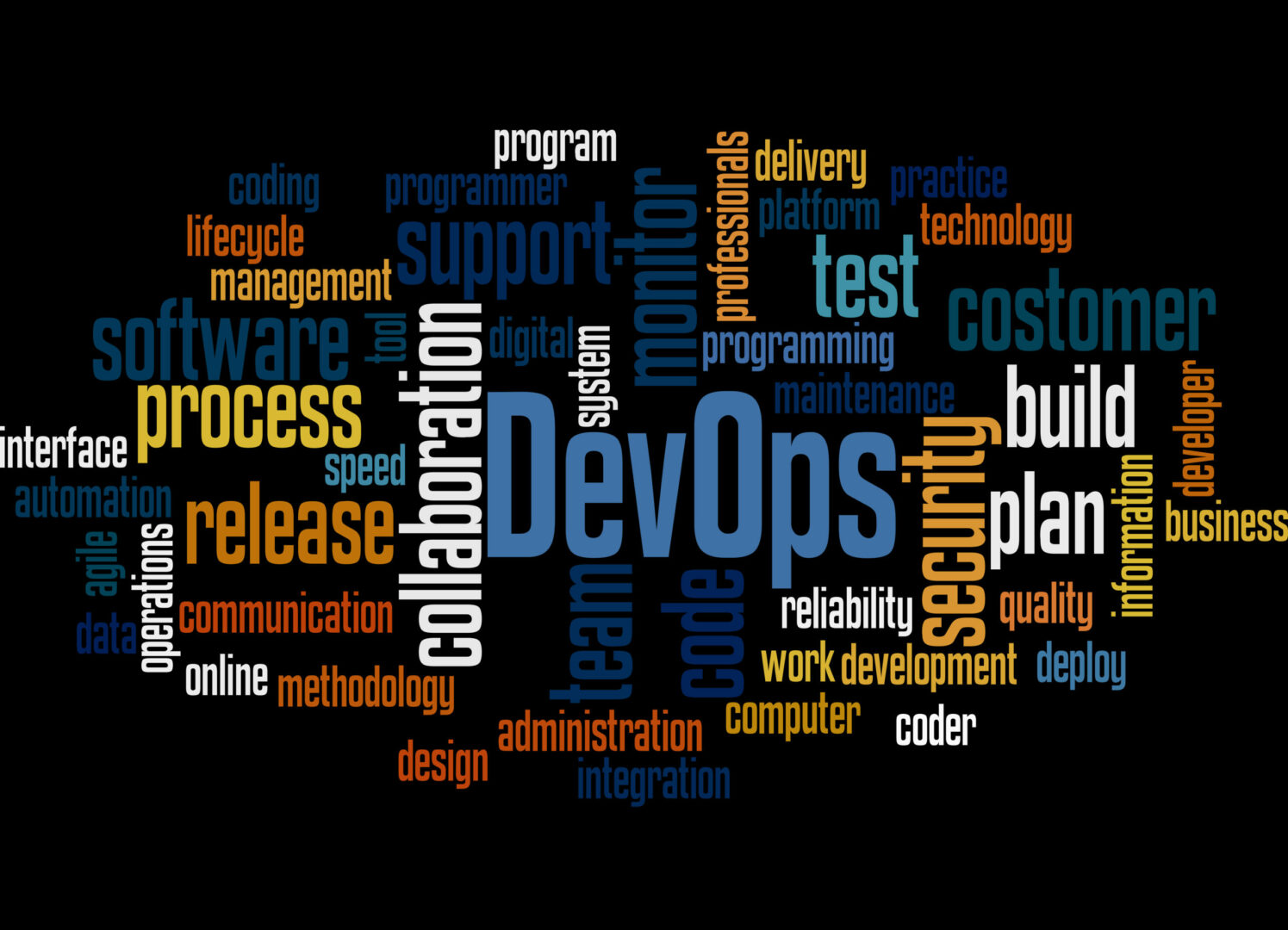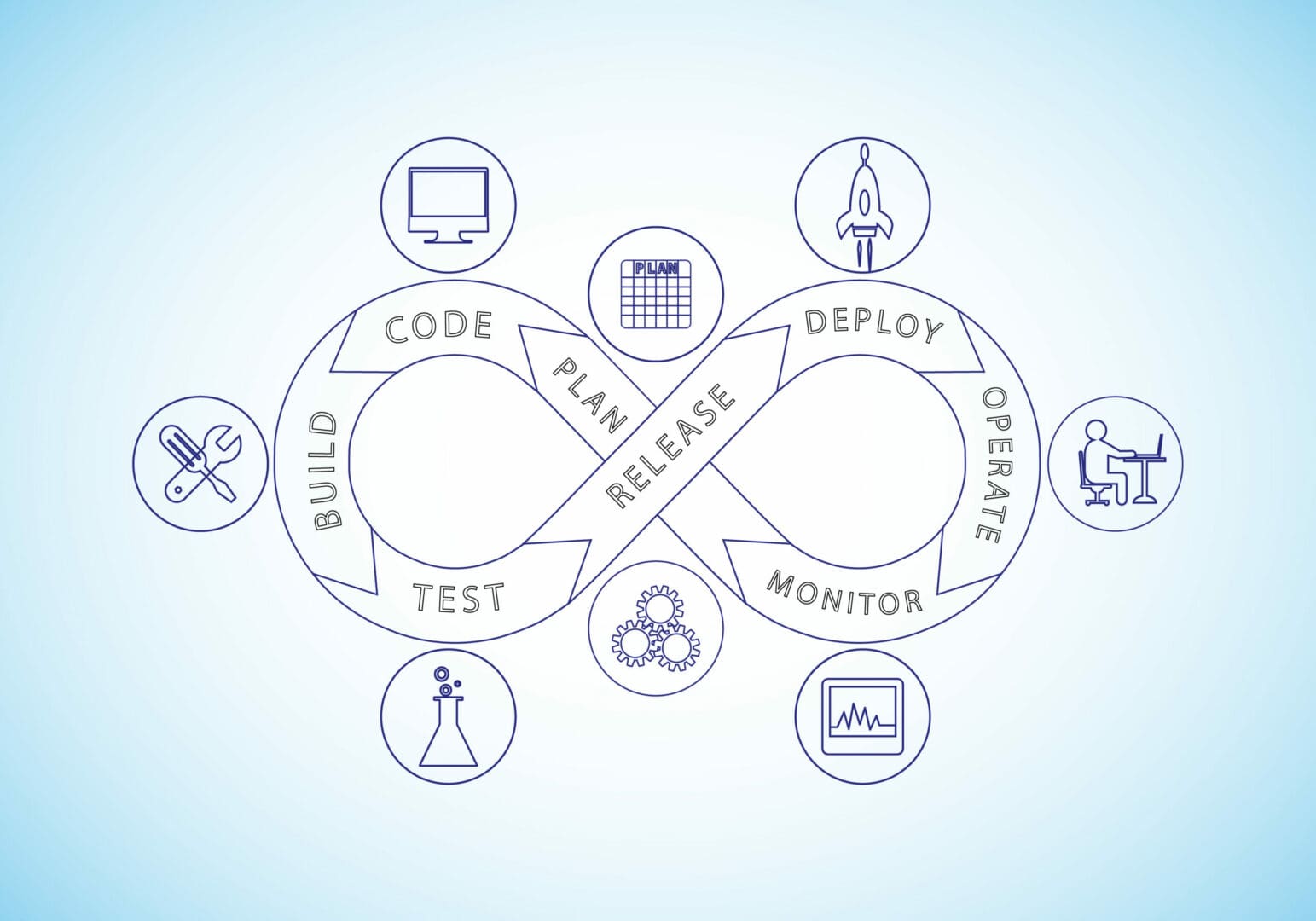While it’s probable that you’ve come across the term DevOps, you’ve likely received a range of responses when seeking information about it. The demand for DevOps professionals is steadily rising, and in recent years, they have become the backbone of every respectable tech company. In the following article, we will explain what DevOps is, the role of a DevOps Engineer, the common tools they use, and what a day in the life of a DevOps professional looks like.
What is DevOps?
DevOps is essentially a set of practices and guiding principles that form part of an organizational culture that facilitates the development process, IT operations, security, and collaboration. The focused definition of DevOps refers to an organizational culture aimed at allowing teams to work together on projects with a willing distribution of stages, emphasizing project planning, development, testing, project distribution, and operation. This organizational culture combines a wide range of automated tools, principles, and flexible computing infrastructure that enables continuous and efficient work, including transitions between the various stages of the project.
DevOps as an Organizational Culture
In its broad usage, encompassing organizational culture, you might encounter different definitions of DevOps. Nevertheless, there are core principles of the DevOps philosophy that organizations adopt as a perspective to improve communication between different teams in the company, visibility, and cooperation among them.
The three core principles of the DevOps philosophy firstly involve the continuous participation of IT in all stages of system planning and development, encompassing various operations personnel. Secondly, they entail the implementation and reliance on automation to significantly reduce human effort, time, and costs for the company. The final principle involves the incorporation and application of different methods and tools to operate the product, enabling the execution of various tasks.
What does the development process look like in an organization adopting DevOps?
The loop you see visualizes the interfaces between all functions in different links in the chain, and the need for constant collaboration between them to maintain synchronized, fast, and high-quality work processes.
The loop of the infinite DevOps includes:
- Planning
- Programming
- Local testing
- Building
- Testing
- Versioning
- Deployment (Production)
- Operation
- Monitoring

The Role of DevOps
We have talked about DevOps in the context of a general organizational culture that forms the way a product is developed, but what does a DevOps professional actually do in their role?
The role of a DevOps professional is to embed various actions aimed at improving the efficiency of the organization and saving costs. This includes tasks such as automated testing, process automation, implementation of CI/CD processes to ensure continuous build and delivery processes of the product, optimization of organizational resources, continuous monitoring and control of the product, adherence to high code standards, prevention of unnecessary developments, establishment of real-time alert technologies, bug detection tools, and more.
Essentially, the implementation of all these tools falls under the purview of the DevOps team within the organization, overseen by a DevOps Engineer.
DevOps Engineer’s Role
The role of a DevOps Engineer is to develop the tools that will allow the implementation of the DevOps philosophy in the organization. For example, a DevOps professional can work on developing infrastructure that enables automatic testing of a technological product, thereby saving human resources and money for the organization.
A DevOps Engineer has three main areas of responsibility: organization resources, CI-CD process, and monitoring. Regarding organizational resources, a DevOps professional is responsible for managing the organization’s resources that cost a significant amount of money and consume considerable maintenance time. Sometimes a DevOps professional receives a request from a developer for access to a resource, rejects it, and directs them to a cheaper resource. This includes databases, various code management systems, monitoring systems, cloud resources, and more.
Regarding the CI-CD process, we won’t go into details, but in essence, the role of a DevOps professional is to make the developer’s code integrate efficiently, safely, and quickly into the product. As for the monitoring process, the role of a DevOps professional will need to constantly ensure that the product works as it should, including how many people use it, bugs and their types. In general, in this process, a DevOps professional acts as a mediator with the client, with the goal that the client is as satisfied as possible.
To streamline the monitoring process, the goal of a DevOps professional is that development teams can identify issues before they occur and prevent them. To achieve this, they will develop a notification system that will inform developers in real-time if something is happening. For example, the developer will receive an email that no leads were received in the last hour or something similar. Additionally, they will implement logs that will allow them to monitor the product while using it in real-time and investigate the nature of its use.
Common Technologies in the DevOps Field
There is a wide range of common tools in the DevOps field, and most of them can be seen in the image below, but we won’t be able to cover all of them.

- GIT – GIT is the most popular and widely used version control system in the current development era. It tracks all changes and updates that occur in the code, allowing the preservation of the code for new versions. Several popular systems use GIT as their version control engine, including GitHub, GitLab, and BitBucket.
- Jenkins – Jenkins is an open-source CI server that serves as a management system for product building processes in the development stages. It is supported by various operating systems, including MacOS, Windows, and Linux. It supports the sequence of operations that perform continuous build, test, and deployment processes for various platforms.
- Kubernetes – Kubernetes is an open-source platform that assists in managing clusters of services and applications. The platform allocates several servers on which containers (independent applications sharing computing resources) run.
- Azure/AWS/GCP – Cloud computing platforms that provide cloud services to organizations and technological companies. These platforms offer a wide range of technological services, including storage, development, and computing. The use of these platforms allows companies to tackle technological challenges on their way without wasting time or money on the trial and error of developing in-house solutions, computing services, and servers, file storage, IOT, and AI engines.
How Does DevOps Affect the Organization it Works in?
The tech industry is increasingly seeking skilled DevOps professionals, and this demand is continuing to rise. It’s evident that the impact of DevOps professionals on the organizations they work in is immense. This impact refers to cost savings, efficient resource allocation, streamlining of processes, enhanced system speed, risk reduction, and more.
The data reveals that 99% of companies that implemented the DevOps approach in their organization reported a positive impact.
DevOps Pro – Career Path at Infinity Labs R&D
The DevOps Pro track at Infinity Labs R&D is not just another DevOps course in the market, but a comprehensive, unique, and in-depth program where students learn and practice extensively with hands-on work. The program is 20 weeks, and is based on the Infinity Labs R&D Mentored Social Learning (IMSL™) methodology developed in-house. It combines a unique methodology with independent research, teamwork, and a simulated work environment that mirrors a development team in the industry. Upon completing the program, students integrate into DevOps positions in Israeli and international tech companies, typically requiring a few years of experience.
The program is divided into two parts – learning technological infrastructure and deepening methodology. Learning the infrastructure encompasses system realms, development languages, operating systems, and more. Deepening the methodology includes SDLC stages, familiarity with potential professional challenges, and common tools and solutions in the industry for these challenges.
Core topics include mastering complex testing methods, implementing CI processes, working with code and version management tools, building processes with Docker and Kubernetes, understanding cloud solutions, application and infrastructure security domains, and working with various types of databases.
On the business side, the program operates on a WIN-WIN-WIN model: the training stage is provided at the expense of Infinity Labs R&D, and only when the students are successfully hired by one of the company’s clients and perform well over time, the company then recovers the investment and profits from the process.



